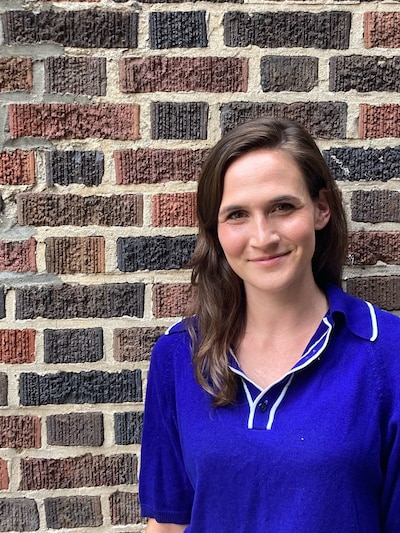One teacher quit because they were tired, another for a salary that made their jaw drop when they saw it, and another still to work on an organic farm.
Last year at the high school where I worked, roughly a dozen teachers left between the beginning of August and the end of the school year. Their reasons for leaving were varied; they were also consistent. They were anxious from hard lockdowns, worn out by extra duties, stressed about student data, and worried for their students. Teaching gave them skills that someone else would pay for. It didn’t have to be this hard.

I am now among them — writing from a place where you don’t have to send an all-staff email to take a bathroom break. I stopped teaching 11th grade English to start a doctoral program in Education in the fall. Now, when people ask me what I’ll do with my degree, I mutter something about research and then confess that I still want to teach.
So why does the classroom beckon? My husband is good company when I work from home, but he doesn’t shimmy through the door with a goofy hello the way my students used to do. Microwaving leftovers is lonely without a colleague to conspire with, and nobody’s practicing TikTok dances in my own hallway. Sure, I can take a midday phone call like I never could while teaching “The Great Gatsby,” but I’m not as present, intellectually engaged, as I was in those lessons either. I have the confidence of knowing my to-do list is surmountable without the challenge of knowing I can never master my craft. I sit more. I laugh less. I check emails during the time I used to check in with people.
Out of the classroom, I am much less jaded, but I also experience much less joy. The author Annie Dillard once wrote that the world is full of “unwrapped gifts and free surprises,” like “pennies cast broadside from a generous hand.” When you teach, those mundane miracles are as dense as the door at dismissal. A student brings you the beginnings of a sci-fi novel they’ve written in their notebook, while two others share sour punch straws that still taste good at 9 a.m., and you remember that, even in a time of increased isolation, schools are places where community happens whether we’re paying attention or not.
I pause when appeals to would-be teachers rely on sentiment without systems of support.
During a particularly challenging moment in the 2020-21 school year, I asked a senior who worked on the school newspaper what he wanted to write about. We were meeting on Zoom, and in the silence before he unmuted I predicted he’d say politics, the pandemic, or punitive discipline policies. “I want to write about how much we — students — care for each other,” he said. “No one really talks about that.”
I want to talk about that.
Still, I pause when appeals to would-be teachers rely on sentiment without systems of support. We know the meaning teachers have. What we don’t always know is whether or not our profession will treat us like professionals. And as states and districts consider bold measures to combat teacher shortages, I think some of us would come back for things that don’t feel radical. A wage commensurate with hours, education, and experience. The ability to schedule doctors’ appointments without docked pay or added guilt. Decision-making processes that feature teacher input, where their perspectives hold the significance their experience has earned.
My decision to leave the classroom came after my two teacher role models chose to leave their schools. These were the kind of people you want teaching your children: smart, caring, creative, and devoted to their craft. Neither of them looked for reasons to leave but both of them found them. The problems they faced weren’t personal but systemic. I followed them out of the classroom, hoping in grad school I’d learn more about why those systems exist and how much they can change. I don’t know how they change, but I’m keeping my resume updated, just in case.
Now, when I hear teacher friends talk about their schools I listen like a thief. Are they valued? What’s their principal like? Do they have a stipend for professional development or access to an in-school sub? Some of them have found places where they feel less jaded and more joy. They exist! I wish there were more of them, for teachers and students, too. I’d trade in unlimited bathroom breaks to teach well and be well.
Kate Essig used to teach in Brooklyn and now lives in St. Louis.



